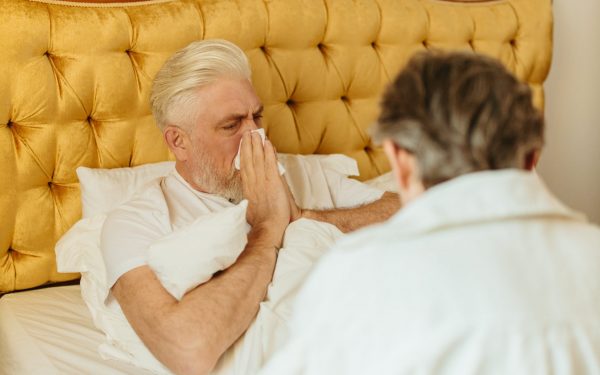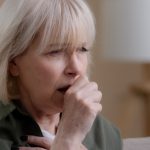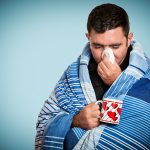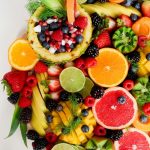Allowing your immune system to get rundown during flu season is like issuing an invitation for the flu to take up residence in your body.
Now, there are many reasons your immune function may be working sluggishly. Spending all your time indoors and a lack of physical activity are both linked with lowered immune function. A poor diet never does anyone any good. Stress, grief and depression will all run it down quickly.
And let’s not forget about the link between poor sleep, reduced immune function and the flu.
A July 2023 study highlights the role of sleep in maintaining sufficient immune response and reducing the risk of respiratory infections. The authors discovered that, among 600,000 people, those diagnosed with insomnia had a six times greater risk of developing a respiratory infection. The risk of flu was more than four times higher.
Research released at SLEEP 2023, the 37th annual meeting of the Associated Professional Sleep Societies, reinforces this conclusion.
Using data from Sleep Number smart bed customers, a team of researchers developed an insomnia severity index. Then, they matched the index scores up with cases of flu-like illnesses.
Those without insomnia developed fewer cases of flu-like symptoms. And when they did develop symptoms, they recovered between one and two days more quickly than their insomniac counterparts.
If poor bedtime habits are keeping you up at night, you can find some tips here on how to improve your nighttime habits to go to sleep earlier, and sleep all night long. If it is something else that is preventing you from sleeping well, check this out.
Sunshine, Trees and Flu Prevention
Clearly one of the best defenses against the flu is to keep your immune response strong and healthy so you are better able to fight it off.
Beyond getting a good night’s sleep, another great way to enhance immunity is to spend more time outdoors when weather permits it.
You see, trees and plants emit natural essential oils known as phytoncides. These are antimicrobial oils that defend the plants from insects, animals and rot.
In humans, exposure to phytoncides naturally increase the number and activity of natural killer (NK) cells in the body. NK cells knock tumor cells and virally infected cells out of the body. So that’s great.
Phytoncide exposure also decreases stress hormone levels. So now you know why being out in green areas seems to give you a boost and makes you feel better.
In addition to the immune benefits of phytoncides, the sunlight adds even more of a boost to your immune response.
Sunlight energizes T cells, which play an important role in human immunity. Specifically, low levels of blue light, found in sun rays, makes T cells move faster. This helps them get to the to the areas where they are needed more quickly.
And while being outdoors can do all of this for you, the physical activity of walking, hiking and pumping your arms will further boost your immune response.
Don’t Forget the Power of Food and Nutrition
Feeding your immune system a healthy diet, rich with fresh fruits and vegetables and low on refined sugars and saturated fats, goes a long way to keeping your immune system strong. It’s a good idea to supplement with a high-quality multi-vitamin every day, too, to fill in any nutritional gaps.
It’s particularly important to maintain adequate levels of vitamin D. When people are low on the sunshine vitamin, they’re more likely get respiratory infections like colds and flus. But it’s tough to get enough D in the winter when you live in the northern states – especially during the flu season – because there just isn’t as much sun during that time of year.
I suggest getting your D from a supplement that contains the cholecalciferol form of D3. Taking 2,000 IU daily should do the trick. However, if you’ve had your levels tested and find you are insufficient or deficient, you may need up to 5,000 IU a day.
And here’s a special tip for you…
Years ago I created my own natural immune booster.
Whenever I had a tickle in my throat or felt like I was coming down with a cold or flu, I would put some organic sliced lemons in a jar. Then, I would add huge chunks of sliced ginger and garlic. Finally, I would fill it with raw, organic honey (not the filtered or pastured kind).
I would mix it all together and let it sit for a while until it liquified, and then take some of it. This turned out to be a tonic that did its job every time. I even used it on my daughter while she was growing up, and she never really got sick.
Since flu activity starts rising in November and generally peaks between December and February, you still have plenty of time to power up your immune system. Don’t wait, get started today!
SOURCES:
Seiler A, Fagundes CP, Christian .M. (2020). The Impact of Everyday Stressors on the Immune System and Health. In: Choukèr, A. (eds) Stress Challenges and Immunity in Space. Springer, Cham.
Thirumdas R, Kothakota A, Pandiselvam R, Bahrami A, Barba FJ. Role of food nutrients and supplementation in fighting against viral infections and boosting immunity: A review. Trends Food Sci Technol. 2021 Apr;110:66-77.
Slusky DJG, Zeckhauser RJ. Sunlight and Protection Against Influenza. Econ Hum Biol. 2021 Jan;40:100942.
Chastin SFM, Abaraogu U, Bourgois JG, Dall PM, Darnborough J, Duncan E, Dumortier J, Pavón DJ, McParland J, Roberts NJ, Hamer M. Effects of Regular Physical Activity on the Immune System, Vaccination and Risk of Community-Acquired Infectious Disease in the General Population: Systematic Review and Meta-Analysis. Sports Med. 2021 Aug;51(8):1673-1686.
Jones SE, Maisha FI, Strausz SJ, Lammi V, Cade BE, Tervi A, Helaakoski V, Broberg ME; FinnGen; Lane JM, Redline S, Saxena R, Ollila HM. The public health impact of poor sleep on severe COVID-19, influenza and upper respiratory infections. EBioMedicine. 2023 Jul;93:104630.
SLEEP 2022: the 37th Annual Meeting of the Associated Professional Sleep Societies. Abstract 0368. Presented June 5, 2023.
Li Q, Kobayashi M, Wakayama Y, Inagaki H, Katsumata M, Hirata Y, Hirata K, Shimizu T, Kawada T, Park BJ, Ohira T, Kagawa T, Miyazaki Y. Effect of phytoncide from trees on human natural killer cell function. Int J Immunopathol Pharmacol. 2009 Oct-Dec;22(4):951-9.
Li Q, Kobayashi M, Inagaki H, Hirata Y, Li YJ, Hirata K, Shimizu T, Suzuki H, Katsumata M, Wakayama Y, Kawada T, Ohira T, Matsui N, Kagawa T. A day trip to a forest park increases human natural killer activity and the expression of anti-cancer proteins in male subjects. J Biol Regul Homeost Agents. 2010 Apr-Jun;24(2):157-65.
Liu S, Galat V, Galat Y, Lee YKA, Wainwright D, Wu J. NK cell-based cancer immunotherapy: from basic biology to clinical development. J Hematol Oncol. 2021 Jan 6;14(1):7.
Phan, T., Jaruga, B., Pingle, S. et al. Intrinsic Photosensitivity Enhances Motility of T Lymphocytes. Sci Rep 6, 39479 (2016).
Schwalfenberg GK. A review of the critical role of vitamin D in the functioning of the immune system and the clinical implications of vitamin D deficiency. Mol Nutr Food Res. 2011 Jan;55(1):96-108.




